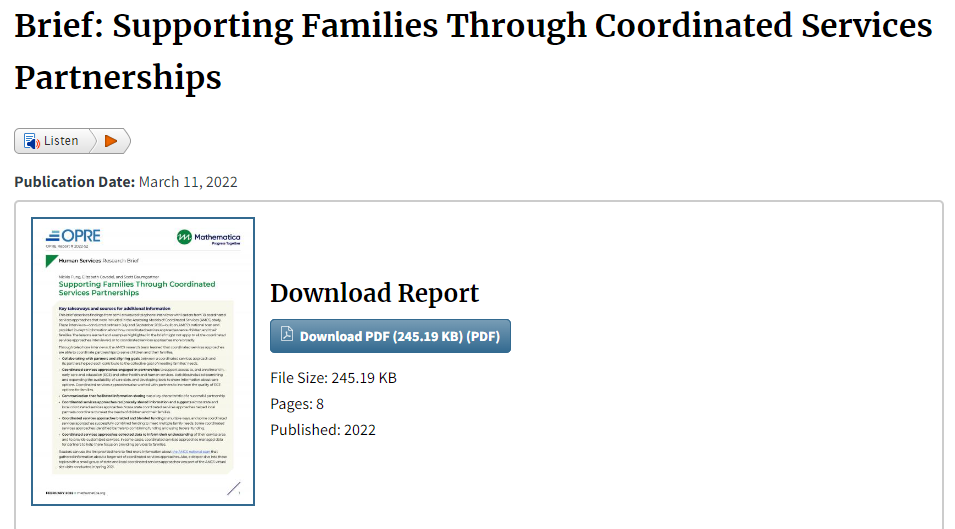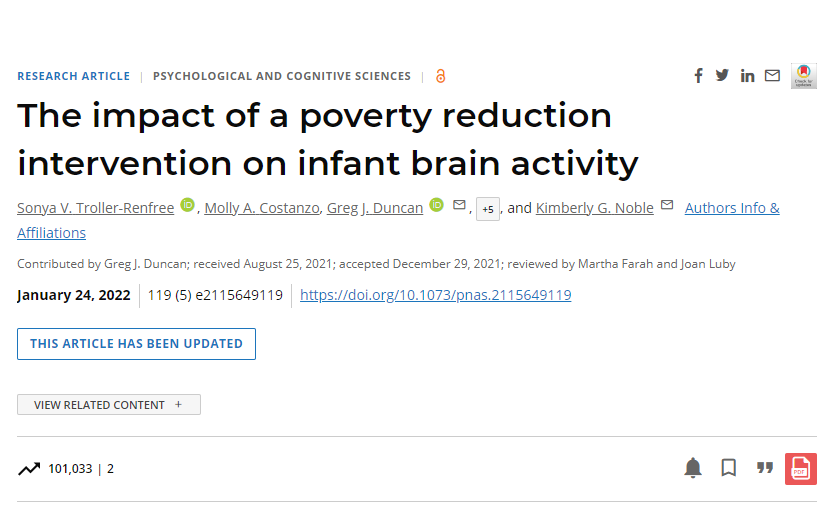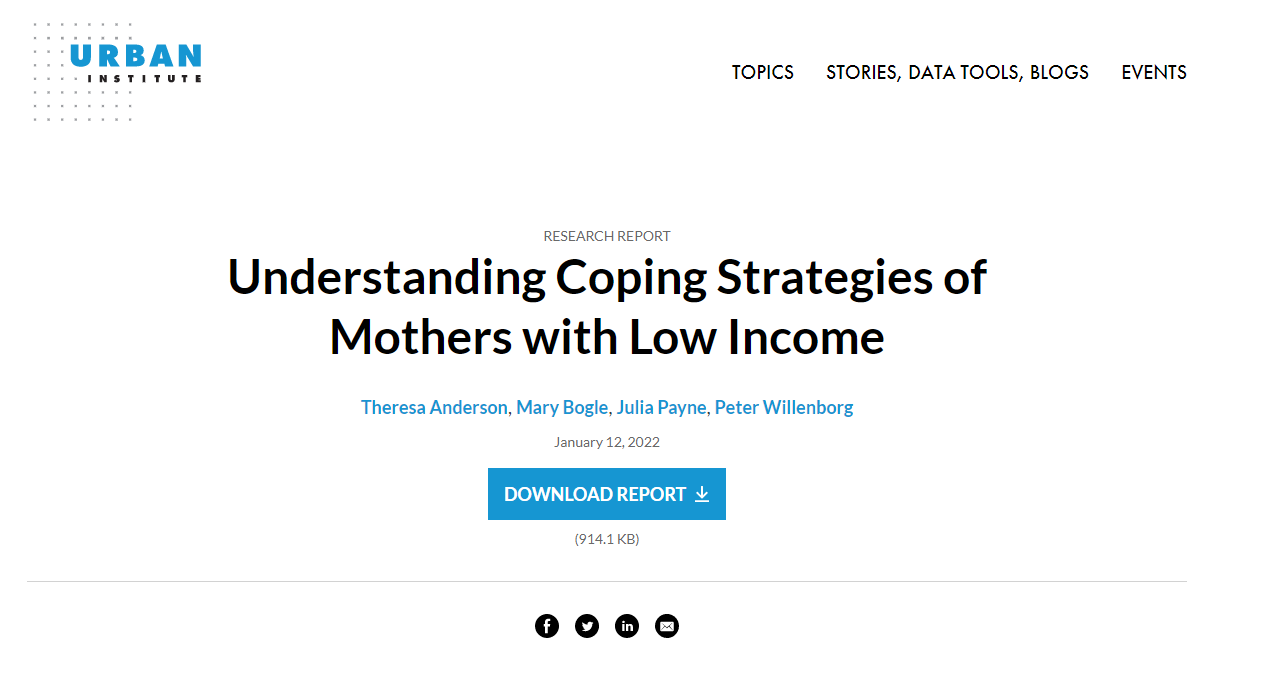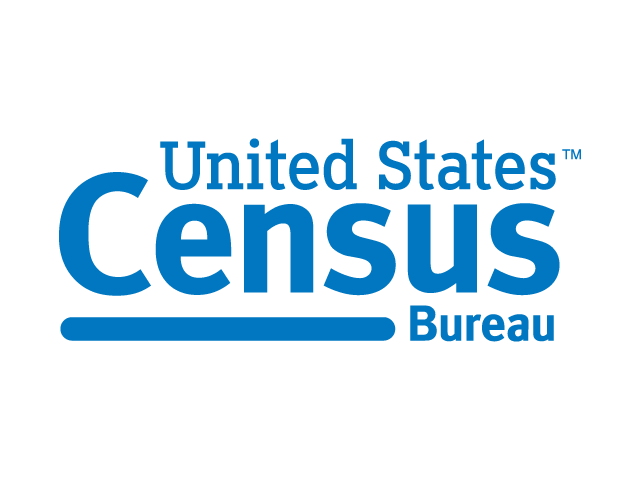OPRE report identifies elements of successful coordinated services partnership models
A new research brief takes stock of efforts to coordinate early childhood education systems with other kinds of family services including income supports and parent-focused services, often with a two-generation lens. These “coordinated service models” are not yet common, so the researchers interviewed 18 leaders of such efforts around the country, aiming to identify promising … Read more








